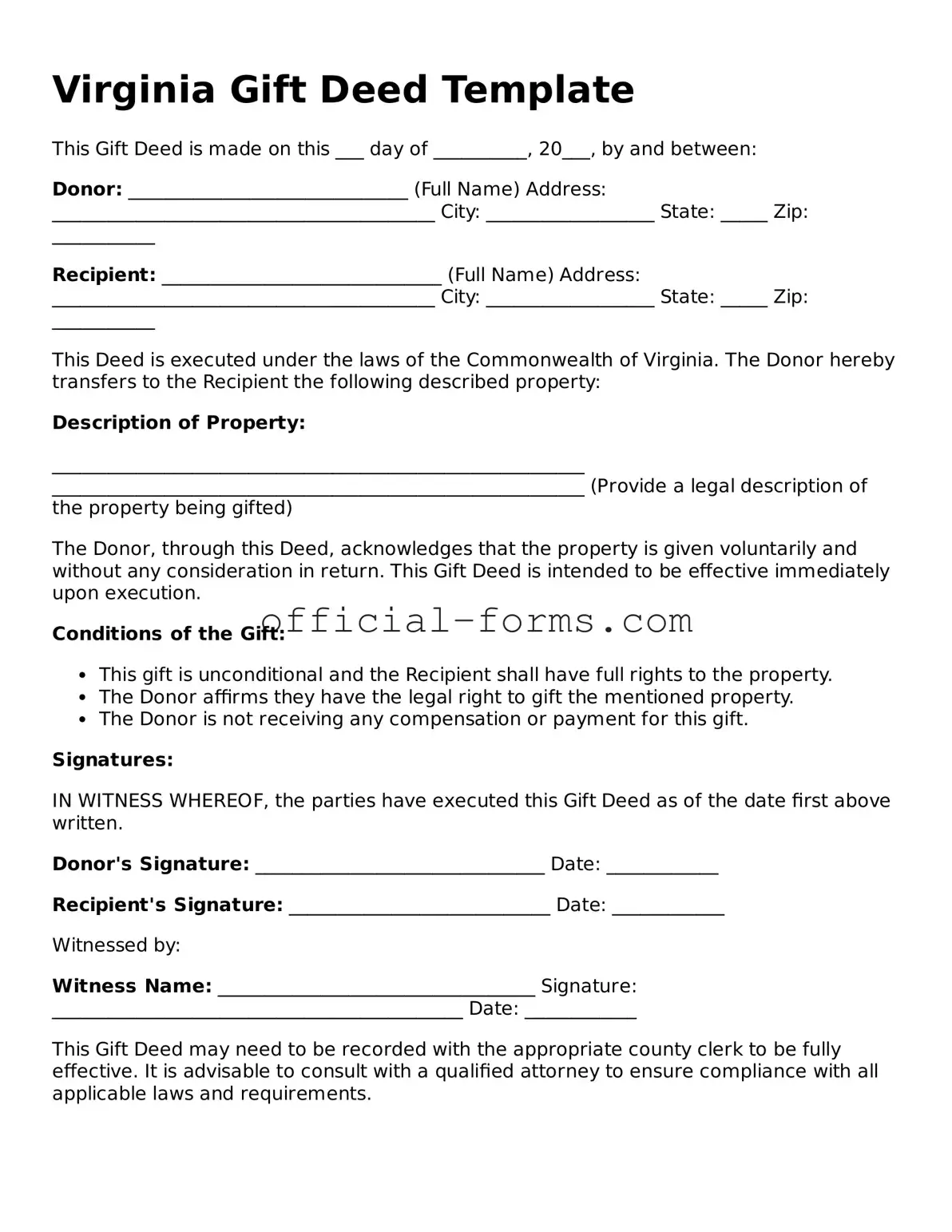Filling out a Virginia Gift Deed form can seem straightforward, but many people make common mistakes that can lead to complications. One frequent error is failing to include the correct names of the grantor and grantee. It's essential that both parties' names are spelled correctly and match their legal documents. Any discrepancies can cause delays or even invalidate the deed.
Another mistake involves the omission of the property description. The deed must clearly identify the property being gifted. This includes the address and any relevant parcel numbers. Without this information, the deed may not be enforceable, leaving the gift unrecognized.
Many individuals also overlook the need for proper signatures. The grantor must sign the deed in front of a notary public. If the signature is missing or not notarized, the document may not hold up in court. It’s crucial to ensure that all signatures are present and correctly executed.
People often forget to check the date of the gift. The date must be accurate and reflect when the transfer is intended to take place. An incorrect date can create confusion and lead to potential legal disputes later on.
Another common issue is failing to consider tax implications. While gifts may not be subject to income tax, they can have other tax consequences. Not understanding these implications can lead to unexpected financial burdens for both the giver and receiver.
Some individuals neglect to record the deed after it has been signed and notarized. Recording the deed with the local clerk's office is essential to ensure the gift is recognized publicly. Without this step, the gift may not be enforceable against third parties.
In addition, people sometimes use outdated forms or templates. Laws and regulations can change, so it’s important to use the most current version of the Gift Deed form. Relying on outdated documents can lead to compliance issues.
Another mistake is not consulting with a legal professional. While it may be tempting to fill out the form independently, seeking guidance can help avoid pitfalls. A legal expert can provide insights that ensure the deed is completed correctly.
Finally, individuals may fail to communicate clearly with all parties involved. Open discussions about the gift can prevent misunderstandings and ensure that everyone is on the same page. Clear communication is key to a smooth transfer process.

